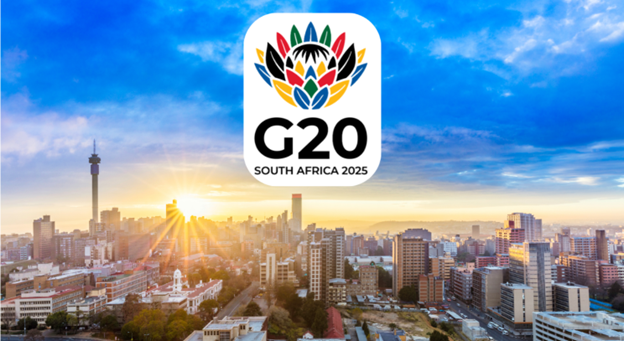In a significant move for international dialogue, Johannesburg is set to host the inaugural Global South Media and Think-Tank Forum—China-Africa Partnership Conference, from November 12 to 14. Just days before the 2025 G20 Summit, this groundbreaking forum aims to serve as a platform for discussing the strengthening ties between China and Africa, thereby amplifying the Global South’s voice in shaping governance systems globally.
Organized by NNATVPlus, this forum marks the first of its kind on African soil, with a theme that resonates deeply: “Reforming Global Governance: New Roles and Visions for China-Africa Cooperation.” This theme underscores the growing significance of the China-Africa partnership as global power dynamics evolve.
Sello Lentsoane, Head of Platforms and Strategy, shared insights with News Network Africa (NNA) TV Plus, calling the conference a timely response to the shifting geopolitical landscape. “The concept of the Global South has transitioned from a broad geopolitical term to a well-coordinated initiative aimed at reforming global financial, political, and media systems,” he explained. This evolution acknowledges the historical dominance of the Global North in these arenas and emphasizes Africa’s emerging role.
The conference represents a crucial opportunity for African nations to leap beyond bilateral engagements with China and assert their influence on multilateral platforms. Lentsoane eloquently stated, “The conference symbolizes a changing global narrative, where African countries are not just beneficiaries of development but are actively shaping new economic and governance models.”
Currently, Africa stands as China’s largest trading partner, with bilateral trade estimated at an impressive $282 billion in 2023. This economic relationship extends beyond mere trade; it encompasses infrastructure development, digital connectivity, and educational initiatives that Beijing has facilitated across the continent. Such projects reflect a broader commitment to fostering sustainable growth in Africa.
The Johannesburg conference aims to focus on reforming key international institutions, including the World Bank, the International Monetary Fund (IMF), and the United Nations. Lentsoane pointed out the strategic timing of the event, positioning Africa and China centrally in global discussions concerning economic reforms, climate commitments, and development finance ahead of the G20 Leaders’ Summit.
Delegates from various sectors—including academics, policymakers, and media practitioners—are expected to converge at the Houghton Hotel in eastern Johannesburg. This diverse representation showcases the evolving relationship between China and Africa and its broader implications for the Global South.
Among the keynote speakers is Prof. Pumela Msweli, a distinguished leader in African business education and the Executive Dean of the Graduate School of Business Leadership at the University of South Africa (UNISA). Msweli’s vision for Africa includes a shift from passive participation in global governance to a more assertive role where the continent’s ideas and leadership philosophies actively influence global systems. “Africa’s participation must evolve from mere inclusion to genuine influence,” she noted.
Msweli emphasized that reforming global governance is no longer a theoretical exercise but a pressing necessity for Africa. She advocates for building institutions that genuinely reflect the continent’s realities and establishing partnerships rooted in respect for sovereignty. Her leadership has already garnered significant achievements; under her guidance, the Graduate School of Business Leadership recently received its first international accreditation from the Business Graduates Association (BGA).
This conference not only highlights the existing cooperation between China and Africa but also serves as a critical juncture for Africa to redefine its role in global governance. Discussions at the forum will undoubtedly set the stage for a more developed and engaged stance from African nations on the international stage, pushing for models that resonate with their unique contexts.
As the world gears up for the G20 Summit, the outcomes of this forum could have far-reaching implications, fostering a generation of African leaders who are equipped to navigate and influence the global landscape more effectively.

(Photo Credit: South African Institute of International Affairs)

(Photo Credit: NNA News)



